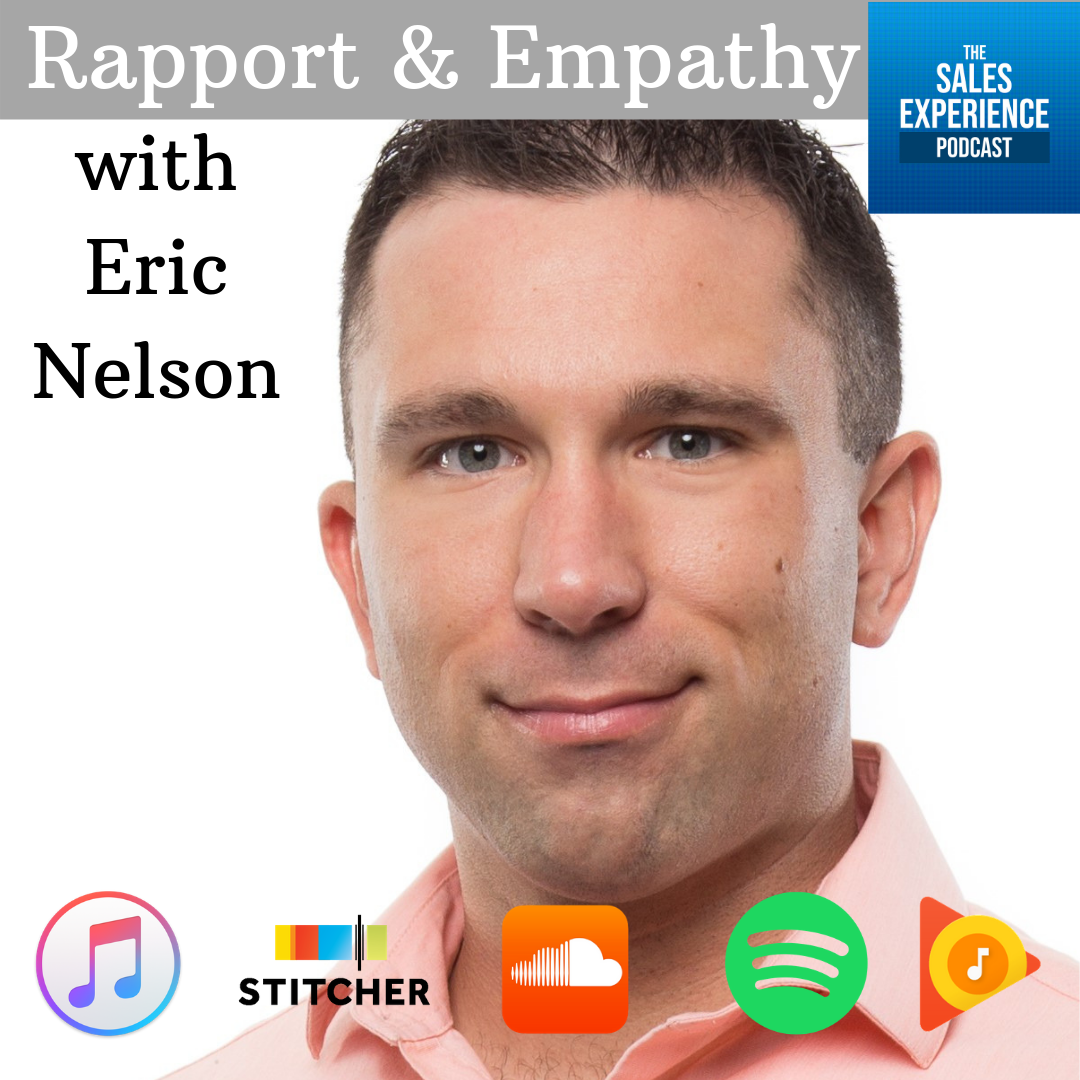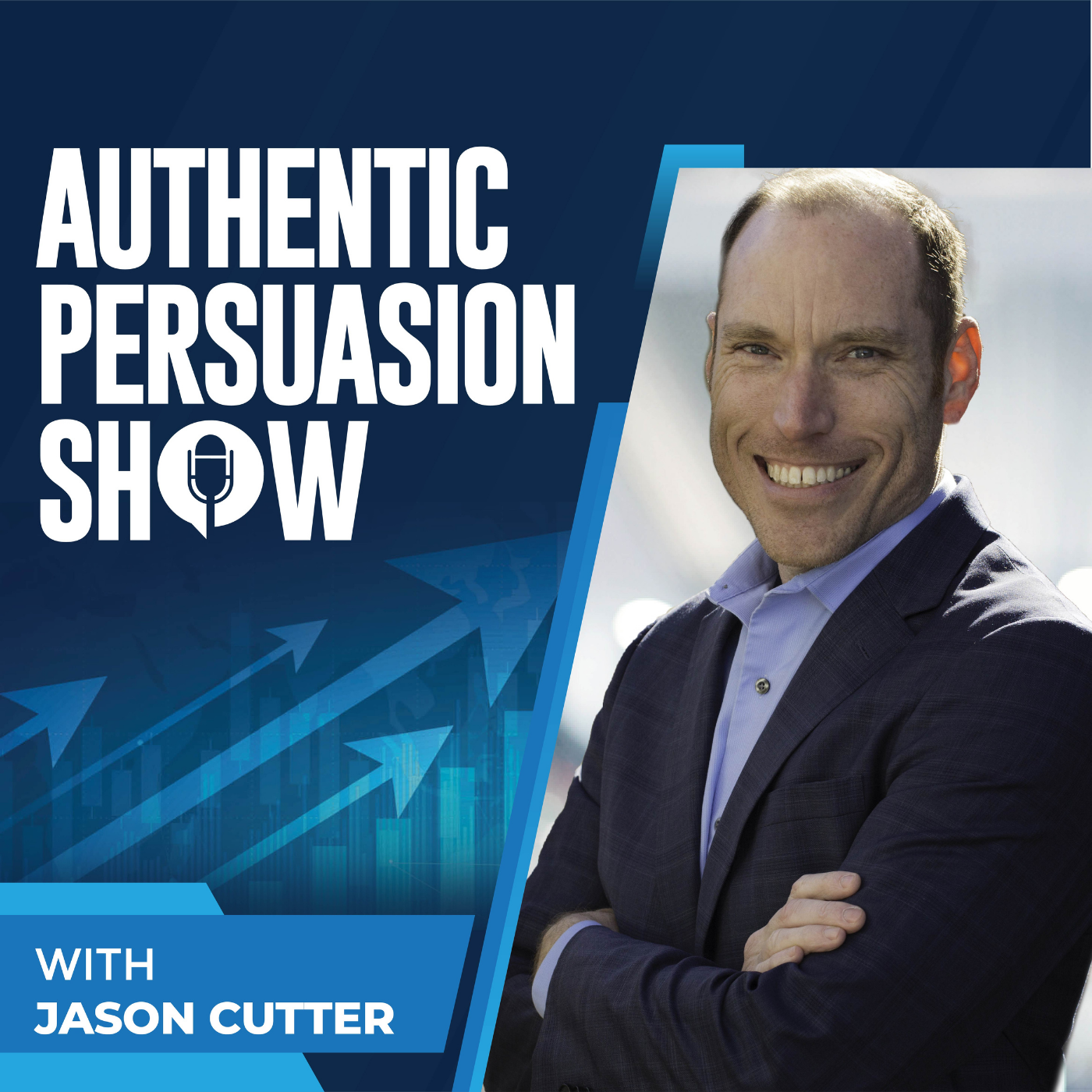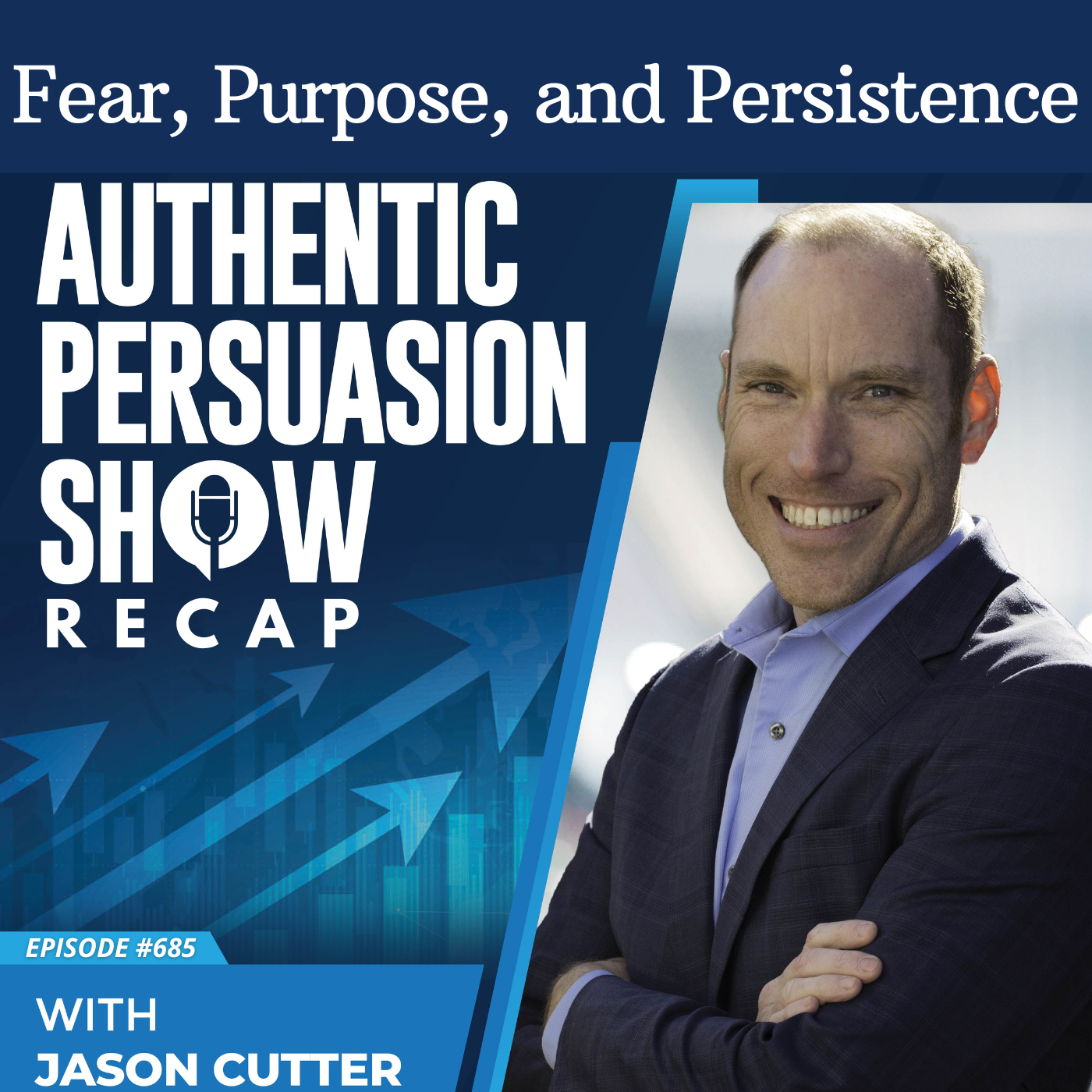Show Notes
Final segment of speaking with Kwame Christian, Director of the American Negotiation Institute.
Some gems from Part 4:
“Sometimes the best thing you could do for a relationship is wait.”
“It’s all about intent.”
Download The Power of Authentic Persuasion ebook
Enroll in the Authentic Persuasion Online Course
Get help with your sales team
Connect with Jason on LinkedIn
Connect with Kwame on LinkedIn
Kwame’s Bio:
Kwame Christian, Esq., M.A. is the Director of the American Negotiation Institute where he conducts negotiation and conflict management workshops around the country. As an attorney and mediator with a bachelors of arts in Psychology, a Master of Public Policy, and a law degree, Kwame brings a unique multidisciplinary approach to making difficult conversations easier. In addition to his role with the American Negotiation Institute, Kwame also serves as a professor at The Ohio State University Moritz College of Law, the top ranked dispute resolution program in the country, and Otterbein University’s MBA program.
He is the author of the best selling book Nobody Will Play With Me: How to Use Compassionate Curiosity to Find Confidence in Conflict and his TEDx Talk, Finding Confidence in Conflict, was the most popular TED Talk on the topic of conflict of 2017. Kwame also hosts the top negotiation podcast in the world, Negotiate Anything. The show has been downloaded over 1,000,000 times and has listeners in 183 different countries.
Kwame’s Links:
E207 – Transcript
Jason Welcome to the final section of my conversation with Kwame Christian. We had a lot of fun. If you didn’t, if you’re listening to this and you just got this episode, make sure to go back and listen to parts one, two and three because this is a continuation and the final portion of that conversation all in one. Here you go. Part four, enjoy.
Kwame: So what I’ll instead do is, but that shot clock and then take action and then the hope is have micro failures. So I tried to do something. Okay, recognize this specific way didn’t work. It’s not that the whole thing didn’t work. Now I’ve gotten more data so I can adjust my strategy slightly and then continue to move forward. So it’s about doing it in a reasoned way, but the mentality about failing faster I think is just a recognition of that there’s value in that failure and you can’t fear it and it’s a major part of progress, but it doesn’t give you the license to be sloppy. You have the license to fail, not to be sloppy.
Jason: Yeah, I mean, trying something new like an activity doesn’t mean, you know, jumping off a cliff without a parachute. Right? You want to fail smartly if you will. And I think this is interesting too, to tie in as just a reminder and anyone who’s listened to me or probably you, any of your audiences, you know, this has probably hurt both of us say this a lot in our respective things, but it’s a good reminder here, which is the mindset and the why, right? Like why are you doing that? Because that’s super important. You know, when you’re talking about failing fast, failing forward, we’re having this conversation of just trying things, negotiation, all of that. It’s like, why are you doing it as an individual, as a salesperson or you’re trying to create a business whenever it is you’re doing. Like why are you doing it and why is the failing and the learning important to help you get to where you want to go and the big picture.
Kwame: Exactly. Yeah.
Jason: So what do you think, we talked about the sales reps, like where do you see salespeople like struggle wrapping this back around to the conflict and negotiation side? Like where do you see them really struggling? Where could people make the biggest change with the smallest amount of effort in your experience?
Kwame: Yeah, I think it has to be a mindset thing. Let’s go to the license to fail because the failure comes in in different ways and so it might be actually having a conversation with somebody and that feels like failure because it didn’t work out the way that we wanted to. But we also have to think about having the license to experience things that feel like failure. And so sometimes that would be waiting. Sometimes the best thing you could do for a relationship is wait, play the long game because trust takes time to build. That’s the first thing. And then also for different people it takes different amounts of time to build. And so I think about sometimes where clients have come in after like a year or two or something like that where they’ve made initial contact. I tried to close something with them, they said no. And then recognizing when there is productive tension by having the conversation and pushing the conversation and unproductive tension because you’re pushing too hard and you push away. And I feel like that was a knowing sigh from you.
Jason: No, it is. You know, it’s just so interesting because when you tap into that and you feel it, like, you know, and it’s always tough as a management side to like get reps to know like when they should push that person or when they shouldn’t push. Right? Like when pushing that person is the key and they need it because otherwise they’re going to put their head back in the sand or if you push that other person wrong, you know, just delete their file. Like literally delete everything I know about them because it’s over and you ruined it. Right. And that’s so wild. That’s one of the toughest things to teach.
Kwame: Exactly. It’s a field thing. That’s the thing. You can teach them the existence of it. But as far as being able to recognize that that is a thing that they need to feel themselves. And it reminds me of this interesting occupation called a chicken sexer. Yup. So what a chicken sexer does is their job is to figure out if this chick that’s been born, the baby chicken, if it is a boy or a girl, which is very important. The sooner you figure that out, the more money the farm makes. Because if you can figure out that it’s a chicken, then this is valuable to you. Chickens can be used for eggs and they could be used for eating. Yeah. The hens. Exactly. And so the, um, the root, if it’s a boy, then it’s a rooster. You can’t eat. I mean, I guess you could, but we don’t do that in America typically.
Kwame: And so if you can figure that out faster, then you don’t spend money taking care of the potential rooster. Now the thing is, when it comes to figuring out whether or not the chicken is a boy or a girl, there’s no clear indication. There’s no way to do it through a machine. You have to look at it. But if you ask the person who’s looking at the chick, what are they seeing? They can’t tell you what it is that they’re seeing. And people go through these courses for a long period of time and only about what 5% of people ever get to the point where they can do it consistently. But it’s a feel thing. You don’t know. You can’t explain it. It’s just a feel thing. And that’s the same way it is with whether or not you’re pushing somebody in the right way. You have to feel it. And it’s so difficult to describe, and I think about it in my mediations because I have to figure out whether or not I’m pushing them too hard because there’s a point where the brain is either, 1. too tired to process new information or 2. they just are not feeling it. And you have to get to that, delete the file point. But it’s a mixture of tone and body language and personality that can really only be understood through experience.
Jason: And what I’ll tell you, because my background is a smidge different than yours. So my bachelor’s degree is in Marine Biology, so nothing to do with it. Your bachelor’s degree is in psychology. So you went the right direction. You built up this nice and Scholastic foundation that’s building up. However, since being in sales, I think I have a degree or at least a minor in psychology and all this stuff I’d studied and that’s what I would suggest for anybody out there. If you’re in sales, you want to be in sales long term and you want to be successful. Study a lot of psychology, study, a lot of behavior, personality types. I mean you don’t have to go full on like Myers Briggs, which can be really complicated, but somewhere in that direction just kind of understand people. I mean even astrology and astrological signs and Tashman theory like you learn that kind of stuff and all of that. Like, I mean one of the biggest things I tell people all the time and it always blows them away is one really good strategy for management and also sales is the five love languages. Like if you know that you can be more successful in sales once you kind of pick up on the triggers of your prospect and what they want and need and then especially management, it’s a home run.
Kwame: Absolutely, and the thing is the more of these different types of assessments you avail yourself to and methodologies and studies and all those things, the better you will be at pattern recognition because it’s not an either or type of thing. Are you thinking about Myers Briggs or you’re talking to about Strengths Finder or the four tendencies of the five love languages, there’s so many things you could do.
Kwame: But if you get a general understanding of all of them, you could say, Oh wait, this person, their love language is gift giving. That’s what they like. Okay, I see that because of X, Y, Z. Something that I can do to make it a little bit more productive or move the needle when it comes to trust is I can just bring them a gift, not a gift that is so big that it seems like a bribe, but something that lets them know that I was thinking of them, and so that’s a good way to let them know that I truly care. And so these are little things, tips and tricks that you can use to make genuine connections with people. And kind of brought back to what you were saying before about the fear of manipulation. It only becomes manipulation if you’re doing it for the wrong purpose. When it comes to persuasion and manipulation, the end goal is the same, but the intent is different.
Jason: It’s all about intent. That’s it. That’s a great place to end. Kwame what’s the best way for people to find you? Obviously, you know, talking about people adding to their repertoire, your course, my course, you know, all of that. Where’s a good place for people to find you?
Kwame: Yeah. I think the best way to start would be the podcast. I’m assuming your podcast listeners are podcast listeners. Let’s go ahead and get started with the “negotiate anything” podcast is the number one ranked negotiation podcast in the world. And we have a course coming out on focusing specifically on confidence and then building tools and techniques on that. But focusing really on looking inside yourself, finding your unique strengths and skills and building on it. Because I think a lot of times when it comes to negotiation, persuasion literature, we’re giving recipes to people who are afraid to get in the kitchen. It doesn’t matter if you know what to do if you’re too afraid to do it. So that’s one of the focuses. And then we do trainings as well. But start with the podcast. That is the easiest way to get in touch with us and hopefully that you joined the negotiate anything tribe.
Jason: Yeah. And uh, I’ll put all of your links in the show notes, the transcription. Kwame, thanks for being here and I appreciate you for what you’re doing in general and helping people negotiate better, have more confidence, just be better humans in terms of relationships, which handling conflict. So I appreciate that.
Kwame: Hey, my pleasure. Thanks for having me, Jason.
Jason: Yeah, and for everyone listening again, you can go to cutterconsultinggroup.com go to the podcast page. You can find this episode and all the transcript for these, this conversation, as well as the show notes, Kwame’s links, and as always, keep in mind that everything in life is sales and people remember the experience you gave them.
![[E207] Sales Negotiations with Kwame Christian – Part 4 of 4](https://episodes.castos.com/salesexperiencepodcast/images/TSEP-Kwame-Christian-Cover-Image.png)


